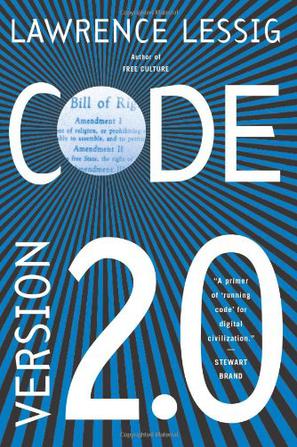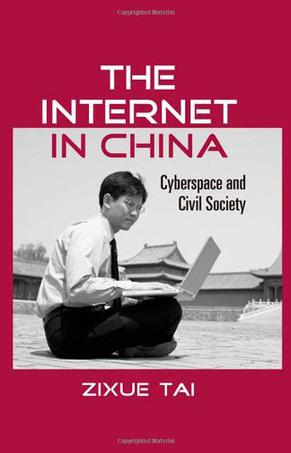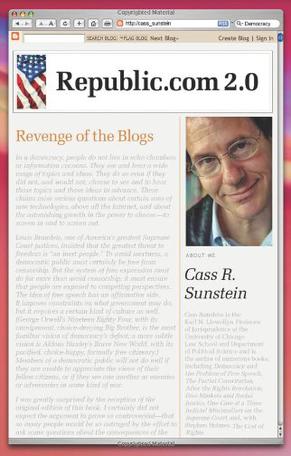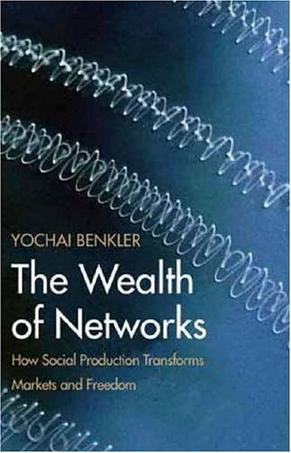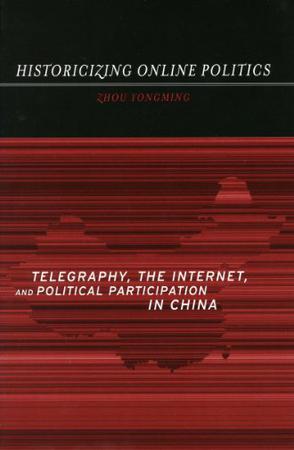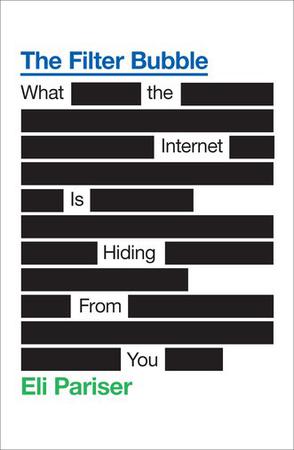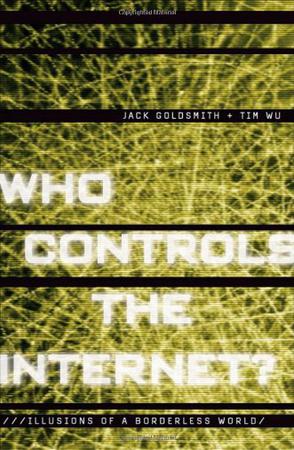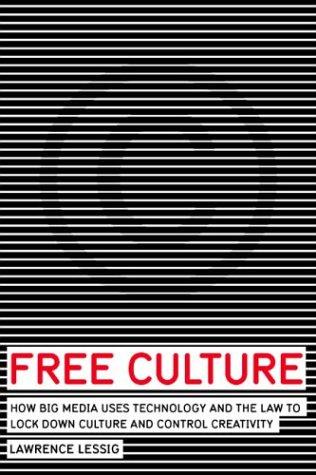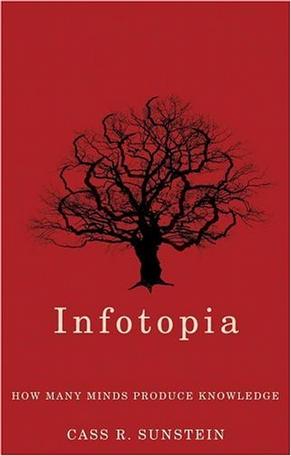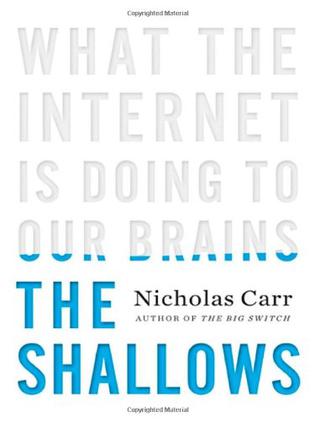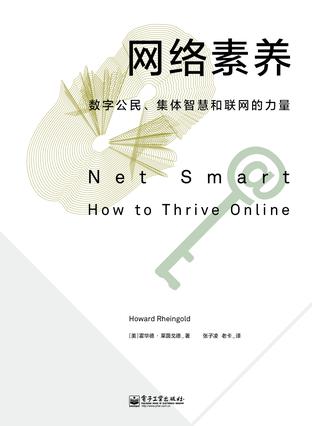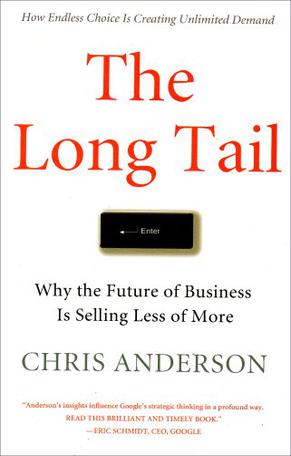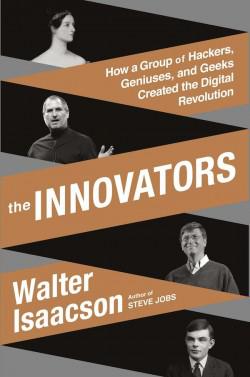欢迎来到相识电子书!
标签:Internet
-
Code
The "alarming and impassioned"* book on how the Internet is redefining constitutional law, now reissued as the first popular book revised online by its readers (* New York Times ) There's a common belief that cyberspace cannot be regulated-that it is, in its very essence, immune from the government's (or anyone else's) control. Code , first published in 2000, argues that this belief is wrong. It is not in the nature of cyberspace to be unregulable; cyberspace has no "nature." It only has code-the software and hardware that make cyberspace what it is. That code can create a place of freedom-as the original architecture of the Net did-or a place of oppressive control. Under the influence of commerce, cyberpsace is becoming a highly regulable space, where behavior is much more tightly controlled than in real space. But that's not inevitable either. We can-we must-choose what kind of cyberspace we want and what freedoms we will guarantee. These choices are all about architecture: about what kind of code will govern cyberspace, and who will control it. In this realm, code is the most significant form of law, and it is up to lawyers, policymakers, and especially citizens to decide what values that code embodies. Since its original publication, this seminal book has earned the status of a minor classic. This second edition, or Version 2.0, has been prepared through the author's wiki, a web site that allows readers to edit the text, making this the first reader-edited revision of a popular book. -
The Internet in China
The Internet in China examines the cultural and political ramifications of the Internet for Chinese society. The rapid growth of the Internet has been enthusiastically embraced by the Chinese government, but the government has also rushed to seize control of the virtual environment. Individuals have responded with impassioned campaigns against official control of information. The emergence of a civil society via cyberspace has had profound effects upon China--for example, in 2003, based on an Internet campaign, the Chinese Supreme People's Court overturned the ruling of a local court for the first time since the Communist Party came to power in 1949. The important question this book asks is not whether the Internet will democratize China, but rather in what ways the Internet is democratizing communication in China. How is the Internet empowering individuals by fostering new types of social spaces and redefining existing social relations? -
Republic.com 2.0
In this follow up to Republic.com, his first appraisal of technology's effect on public discourse, University of Chicago Law School professor Sunstein waxes pessimistic about today's "nightmare" of limitless news and information options-and, more significantly, the limitless options for avoiding it. Gravitating toward those newspapers, blogs, podcasts and other media that reinforce their own views, citizens carefully filter out opposing or alternative viewpoints to create an ideologically exclusive "Daily Me." The sense of personal empowerment consumers gain-and subsequently equate with "freedom"-only fuels the "echo chamber" effect, which replaces a sense of democratic unity with accelerating polarization. Sunstein argues that the most obvious dangers of this effect-single-minded terrorists and hate groups who use cyberspace to communicate directly with receptive audiences-hide the more subtle and far-reaching consequences of the "growing power of consumers to 'filter' what they see": not only do diverse publics need to hear multiple voices, they also must cultivate a culture "where people actually want to hear what others have to say." This perceptive volume effectively illuminates the contradictory impulses at the heart of the citizen-consumer, demonstrating how "there can be no assurance of freedom in a system committed to the Daily Me"; though challenging and thought-provoking throughout, Sunstein's chapter of partial solutions proves underwhelming. -
The Wealth of Networks
With the radical changes in information production that the Internet has introduced, we stand at an important moment of transition, says Yochai Benkler in this thought-provoking book. The phenomenon he describes as social production is reshaping markets, while at the same time offering new opportunities to enhance individual freedom, cultural diversity, political discourse, and justice. But these results are by no means inevitable: a systematic campaign to protect the entrenched industrial information economy of the last century threatens the promise of today’s emerging networked information environment. In this comprehensive social theory of the Internet and the networked information economy, Benkler describes how patterns of information, knowledge, and cultural production are changing—and shows that the way information and knowledge are made available can either limit or enlarge the ways people can create and express themselves. He describes the range of legal and policy choices that confront us and maintains that there is much to be gained—or lost—by the decisions we make today. -
Historicizing Online Politics
It is widely recognized that internet technology has had a profound effect on political participation in China, but this new use of technology is not unprecedented in Chinese history. This is a pioneering work that systematically describes and analyzes the manner in which the Chinese used telegraphy during the late Qing, and the internet in the contemporary period, to participate in politics. Drawing upon insights from the fields of anthropology, history, political science, and media studies, this book historicizes the internet in China and may change the direction of the emergent field of Chinese internet studies. In contrast to previous works, this book is unprecedented in its perspective, in the depth of information and understanding, in the conclusions it reaches, and in its methodology. Written in a clear and engaging style, this book is accessible to a broad audience. -
The Filter Bubble
In December 2009, Google began customizing its search results for each user. Instead of giving you the most broadly popular result, Google now tries to predict what you are most likely to click on. According to MoveOn.org board president Eli Pariser, Google's change in policy is symptomatic of the most significant shift to take place on the Web in recent years-the rise of personalization. In this groundbreaking investigation of the new hidden Web, Pariser uncovers how this growing trend threatens to control how we consume and share information as a society-and reveals what we can do about it.Though the phenomenon has gone largely undetected until now, personalized filters are sweeping the Web, creating individual universes of information for each of us. Facebook-the primary news source for an increasing number of Americans-prioritizes the links it believes will appeal to you so that if you are a liberal, you can expect to see only progressive links. Even an old-media bastion like T -
Who Controls the Internet?
Will cyberanarchy rule the net? And if we do find a way to regulate our cyberlife will national borders dissolve as the Internet becomes the first global state? In this provocative new work, Jack L. Goldsmith and Tim Wu dismiss the fashionable talk of both a 'borderless' net and of a single governing 'code'. Territorial governments can and will, they contend, exercise significant control over all aspects of Internet communications. Examining policy puzzles from e-commerce to privacy, speech and pornography, intellectual property, and cybercrime, Who Controls the Internet demonstrates that individual governments rather than private or global bodies will play that dominant role in regulation. Accessible and controversial, this work is bound to stir comment. -
Infotopia
The rise of the "information society" offers not only considerable peril but also great promise. Beset from all sides by a never-ending barrage of media, how can we ensure that the most accurate information emerges and is heeded? In this book, Cass R. Sunstein develops a deeply optimistic understanding of the human potential to pool information, and to use that knowledge to improve our lives. In an age of information overload, it is easy to fall back on our own prejudices and insulate ourselves with comforting opinions that reaffirm our core beliefs. Crowds quickly become mobs. The justification for the Iraq war, the collapse of Enron, the explosion of the space shuttle Columbia-all of these resulted from decisions made by leaders and groups trapped in "information cocoons," shielded from information at odds with their preconceptions. How can leaders and ordinary people challenge insular decisionmaking and gain access to the sum of human knowledge? Stunning new ways to share and aggregate information, many Internet-based, are helping companies, schools, governments, and individuals not only to acquire, but also to create, ever-growing bodies of accurate knowledge. Through a ceaseless flurry of self-correcting exchanges, wikis, covering everything from politics and business plans to sports and science fiction subcultures, amass-and refine-information. Open-source software enables large numbers of people to participate in technological development. Prediction markets aggregate information in a way that allows companies, ranging from computer manufacturers to Hollywood studios, to make better decisions about product launches and office openings. Sunstein shows how people can assimilate aggregated information without succumbing to the dangers of the herd mentality--and when and why the new aggregation techniques are so astoundingly accurate. In a world where opinion and anecdote increasingly compete on equal footing with hard evidence, the on-line effort of many minds coming together might well provide the best path to infotopia. -
The Shallows
"Is Google making us stupid?" When Nicholas Carr posed that question, in a celebrated Atlantic Monthly cover story, he tapped into a well of anxiety about how the Internet is changing us. He also crystallized one of the most important debates of our time: As we enjoy the Net's bounties, are we sacrificing our ability to read and think deeply? Now, Carr expands his argument into the most compelling exploration of the Internet's intellectual and cultural consequences yet published. As he describes how human thought has been shaped through the centuries by "tools of the mind"--from the alphabet to maps, to the printing press, the clock, and the computer--Carr interweaves a fascinating account of recent discoveries in neuroscience by such pioneers as Michael Merzenich and Eric Kandel. Our brains, the historical and scientific evidence reveals, change in response to our experiences. The technologies we use to find, store, and share information can literally reroute our neural pathways. Building on the insights of thinkers from Plato to McLuhan, Carr makes a convincing case that every information technology carries an intellectual ethic--a set of assumptions about the nature of knowledge and intelligence. He explains how the printed book served to focus our attention, promoting deep and creative thought. In stark contrast, the Internet encourages the rapid, distracted sampling of small bits of information from many sources. Its ethic is that of the industrialist, an ethic of speed and efficiency, of optimized production and consumption--and now the Net is remaking us in its own image. We are becoming ever more adept at scanning and skimming, but what we are losing is our capacity for concentration, contemplation, and reflection. Part intellectual history, part popular science, and part cultural criticism, The Shallows sparkles with memorable vignettes--Friedrich Nietzsche wrestling with a typewriter, Sigmund Freud dissecting the brains of sea creatures, Nathaniel Hawthorne contemplating the thunderous approach of a steam locomotive--even as it plumbs profound questions about the state of our modern psyche. This is a book that will forever alter the way we think about media and our minds. -
网络素养
有人说Google让我们变得更笨,有人说Facebook出卖了我们的隐私,有人说Twitter将我们的注意力碎片化。在你担忧这些社会化媒体让我们变得“浅薄”的时候,有没问过自己,是否真正地掌握了使用社会化媒体的方式? 这本书将介绍五种正在改变我 们这个世界的素养:注意力、 对垃圾信息的识别能力、参与力、协作力和联网智慧。当有足够多的人学会并且能够熟练的使用这些技术,成为真正的数字公民后。健康的新经济、政治、社会、以及文化将会由此出现。而假如这样的素养不能够在我们的社会中得到传播,那么我们将会自我淹没在虚假信息、广告、垃圾信息、噪音和瞎扯当中。 《网络素养》就是为解决这些问题而写的一本及时的书。“虚拟社区”概念的提出者,霍华德·莱茵戈德根据他30年的网络经验,讲述了如何聪明地、人性地、用心地使用社会化媒体。 -
The Long Tail
Book Description "The Long Tail" is a powerful new force in our economy: the rise of the niche. As the cost of reaching consumers drops dramatically, our markets are shifting from a one-size-fits-all model of mass appeal to one of unlimited variety for unique tastes. From supermarket shelves to advertising agencies, the ability to offer vast choice is changing everything, and causing us to rethink where our markets lie and how to get to them. Unlimited selection is revealing truths about what consumers want and how they want to get it, from DVDs at Netflix to songs on iTunes to advertising on Google. However, this is not just a virtue of online marketplaces; it is an example of an entirely new economic model for business, one that is just beginning to show its power. After a century of obsessing over the few products at the head of the demand curve, the new economics of distribution allow us to turn our focus to the many more products in the tail, which collectively can create a new market as big as the one we already know. The Long Tail is really about the economics of abundance. New efficiencies in distribution, manufacturing, and marketing are essentially resetting the definition of whats commercially viable across the board. If the 20th century was about hits, the 21st will be equally about niches. From Publishers Weekly Wired editor Anderson declares the death of "common culture"—and insists that it's for the best. Why don't we all watch the same TV shows, like we used to? Because not long ago, "we had fewer alternatives to compete for our screen attention," he writes. Smash hits have existed largely because of scarcity: with a finite number of bookstore shelves and theaters and Wal-Mart CD racks, "it's only sensible to fill them with the titles that will sell best." Today, Web sites and online retailers offer seemingly infinite inventory, and the result is the "shattering of the mainstream into a zillion different cultural shards." These "countless niches" are market opportunities for those who cast a wide net and de-emphasize the search for blockbusters. It's a provocative analysis and almost certainly on target—though Anderson's assurances that these principles are equally applicable outside the media and entertainment industries are not entirely convincing. The book overuses its examples from Google, Rhapsody, iTunes, Amazon, Netflix and eBay, and it doesn't help that most of the charts of "Long Tail" curves look the same. But Anderson manages to explain a murky trend in clear language, giving entrepreneurs and the rest of us plenty to think about. (July) From Bookmarks Magazine In The Long Tail, Chris Anderson offers a visionary look at the future of business and common culture. The long-tail phenomenon, he argues, will "re-shape our understanding of what people actually want to watch" (or read, etc.). While Anderson presents a fascinating idea backed by thoughtful (if repetitive) analysis, many critics questioned just how greatly the niche market will rework our common popular culture. Anderson convinced most reviewers in his discussion of Internet media sales, but his KitchenAid and Lego examples fell flat. A few pointed out that online markets constitute just 10 percent of U.S. retail, and brick-and-mortar stores will never disappear. Anderson's thesis came under a separate attack by Lee Gomes in his Wall Street Journal column. Anderson had defined the "98 Percent Rule" in his book to mean that no matter how much inventory is made available online, 98 percent of the items will sell at least once. Yet Gomes cited statistics that could indicate that, as the Web and Web services become more mainstream, the 98 Percent Rule may no longer apply: "Ecast [a music-streaming company] told me that now, with a much bigger inventory than when Mr. Anderson spoke to them two years ago, the quarterly no-play rate has risen from 2% to 12%. March data for the 1.1 million songs of Rhapsody, another streamer, shows a 22% no-play rate; another 19% got just one or two plays." If Anderson overreaches in his thesis, he has nonetheless written "one of those business books that, ironically, deserves more than a niche readership" Houston Chronicle From Booklist Citing statistical curves called "long-tailed distributions" because the tails are very long relative to the heads, Anderson, editor of Wired magazine, focuses on the tail, or the development in the new digital world of an infinite number of niche markets of any size that are economically viable due to falling distribution costs and in the aggregate represent significant sales. Although the author considers primarily media and entertainment companies, he also shows the long-tail effect at eBay, KitchenAid, Legos, Salesforce.com, and Google. His nine rules for successful long-tail strategies include lowering costs and thinking niche (one product, distribution method, or price does not fit all) and giving up control by sharing information and offering choices. In this excellent book, Anderson tells that "the story of the long tail is really about the economics of abundance--what happens when the bottlenecks that stand between supply and demand in our culture start to disappear and everything becomes available to everyone." Mary Whaley From AudioFile Anderson's premise that Internet-based retailing and personal expression enable much wider variety and more profitable niche markets and, thus, are killing a formerly "hit-driven" culture and retail world is somewhat controversial. (Just Google THE LONG TAIL.) But this audiobook presents the argument well, with much detail and many current (late 2005) examples. Christopher Nissley's reading style fits the content; he's clipped and staccato, like Anderson's writing. His narration is helpful to the listener who prefers not to get bogged down in the theoretical and technical parts of the book. Anderson himself reads the introduction, and there's a brief author interview at the end of Disc 7, plus downloadable copies of the book's graphics. T.F. Book Dimension length: (cm)23.8 width:(cm)17.3 -
The Innovators
Following his blockbuster biography of Steve Jobs, The Innovators is Walter Isaacson’s revealing story of the people who created the computer and the Internet. It is destined to be the standard history of the digital revolution and an indispensable guide to how innovation really happens. What were the talents that allowed certain inventors and entrepreneurs to turn their visionary ideas into disruptive realities? What led to their creative leaps? Why did some succeed and others fail? In his masterly saga, Isaacson begins with Ada Lovelace, Lord Byron’s daughter, who pioneered computer programming in the 1840s. He explores the fascinating personalities that created our current digital revolution, such as Vannevar Bush, Alan Turing, John von Neumann, J.C.R. Licklider, Doug Engelbart, Robert Noyce, Bill Gates, Steve Wozniak, Steve Jobs, Tim Berners-Lee, and Larry Page. This is the story of how their minds worked and what made them so inventive. It’s also a narrative of how their ability to collaborate and master the art of teamwork made them even more creative. For an era that seeks to foster innovation, creativity, and teamwork, The Innovators shows how they happen.
热门标签
下载排行榜
- 1 梦的解析:最佳译本
- 2 李鸿章全传
- 3 淡定的智慧
- 4 心理操控术
- 5 哈佛口才课
- 6 俗世奇人
- 7 日瓦戈医生
- 8 笑死你的逻辑学
- 9 历史老师没教过的历史
- 10 1分钟和陌生人成为朋友

